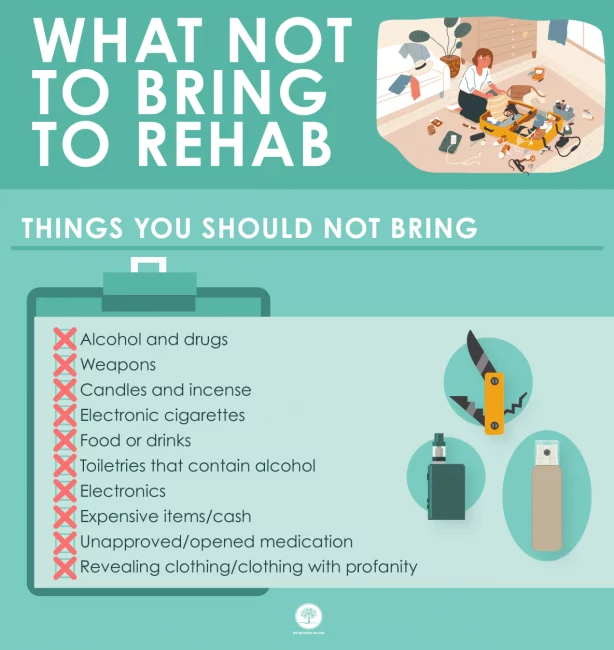Stepping into an inpatient mental health treatment facility can be both a daunting and transformative experience. It’s surprising how the right items packed in your bag can have a significant impact on the journey toward recovery. Choosing the perfect mix of essentials and comforts can make the stay more bearable and productive.
Inpatient facilities often have strict guidelines on what you can bring. Essential items usually include personal toiletries, a few sets of comfortable clothing, and pertinent medical information. Interestingly, studies suggest that personal mementos, like photos or a favorite book, can considerably help in sustaining emotional stability during treatment.

Understanding Inpatient Mental Health Treatment
Inpatient mental health treatment involves staying at a facility designed to provide specialized care. These centers offer a structured environment where patients can focus on their recovery. Patients often receive around-the-clock supervision and support from medical professionals.
The daily routine in an inpatient facility includes various therapeutic activities. These might consist of individual counseling, group therapy sessions, and recreational activities. Each day is carefully planned to help patients develop coping skills and improve their mental health.
Many people benefit from tailored treatment plans in these settings. These plans are customized to each patient’s unique needs and conditions. This personalized approach ensures that the care provided is effective and comprehensive.
Inpatient treatment is often seen as a critical step for those struggling with severe mental health issues. By temporarily removing patients from their regular environment, these facilities offer a safe space for intensive therapy. They aim to stabilize patients and prepare them for a healthier future.
Essential Items to Pack
Packing for an inpatient mental health treatment stay is critical to ensuring comfort and convenience. Bringing the right items can significantly impact your overall experience. A well-prepared bag can help you focus more on your recovery and less on what you might be missing.
Personal Care Items
Personal care items are essential for maintaining hygiene and routine. You will need to pack toiletries like toothbrushes, toothpaste, shampoo, and soap. Don’t forget any specific medical products you may require.
A list of additional personal care items to consider:
- Hairbrush or comb
- Deodorant
- Skin care products
These items help maintain personal hygiene, which contributes to your overall well-being during treatment. Being well-groomed can positively affect how you feel about yourself. It’s essential to stick to familiar products to avoid any allergies or adverse reactions.
Comfortable Clothing
Comfortable clothing is vital for your stay. Opt for loose, breathable fabrics to maximize comfort. Most inpatient facilities recommend packing enough clothes for at least a week.
You might include:
- Casual shirts and pants
- Sleepwear
- Sturdy shoes
Also, consider bringing a jacket or sweater, as hospital environments can be cool. Comfortable clothing allows you to participate in activities without any discomfort. Being dressed comfortably can help you feel at ease and ready to focus on treatment.
Important Documents and Medications
Important documents and medications are crucial for your treatment and should not be overlooked. Make sure to bring your ID, insurance information, and any necessary medical documents. This helps the facility quickly understand your medical history and needs.
Additionally, pack your prescribed medications, but inform the facility beforehand. They will guide you on how to handle your medicines during your stay. It’s also helpful to keep a list of any allergies or specific medical conditions.
This precaution ensures that you receive proper care without any disruptions. Having all necessary documents and medications readily available makes the admission process smoother. It allows healthcare providers to deliver personalized care efficiently.
Comfort Items to Bring Along
Bringing comfort items can make your stay in an inpatient facility more pleasant and soothing. These items help create a familiar environment and reduce stress. Personal mementos can significantly impact emotional well-being.
Consider bringing photos of loved ones, as these can serve as a comforting reminder of home. Books and journals can be helpful for relaxation and self-reflection. Many find that having a favorite pillow or blanket adds a touch of home.
A list of potential comfort items to bring includes:
- Family photos
- A few favorite books
- A personal journal
Additionally, consider items that can provide sensory comfort, like an MP3 player filled with your favorite music or a stress ball. These small items can make a big difference in how you feel during your stay. Being mentally comfortable can positively impact your overall treatment experience.
What Not to Bring to Inpatient Treatment
When preparing for inpatient treatment, knowing what not to bring is just as important as knowing what to pack. Facilities have strict guidelines to ensure safety and a therapeutic environment. Being aware of these can help you avoid unnecessary stress upon arrival.
Firstly, leave behind any sharp objects or items that could be used as weapons. This includes knives, scissors, and even certain tools. These items are prohibited to maintain a safe environment for everyone.
A list of common prohibited items includes:
- Alcohol or drugs
- Cigarettes or any tobacco products
- Weapons of any kind
Electronic devices such as laptops, tablets, and smartphones may also be restricted or limited. Facilities often regulate these to minimize distractions and encourage participation in the therapy process. Check with the facility beforehand to understand their specific rules on electronics.
Perfumes, colognes, and scented lotions are typically not allowed either. These can cause allergic reactions or discomfort among other patients. Stick to unscented products to avoid any issues.
Finally, extremely valuable items like jewelry should be left at home. The risk of losing them is high in a communal setting. Bring only what you absolutely need to avoid potential loss or theft.
Preparing for an Emotionally Smooth Transition
Facing inpatient treatment can be emotionally taxing, so it’s crucial to prepare yourself mentally. Start by acknowledging your feelings and accepting that it’s okay to feel anxious or scared. This self-awareness can significantly ease the emotional burden.
Engage in open conversations with your loved ones before you go. Share your feelings and seek their support. Having a strong support system can make a world of difference.
Develop a set of positive affirmations or coping statements. These can help you stay grounded and focused during challenging moments. Writing them down and keeping them in your room can serve as a constant reminder.
A list of comforting activities to prepare includes:
- Meditation or deep-breathing exercises
- Journaling your thoughts and feelings
- Listening to calming music
Inform yourself about the treatment process and what to expect. Knowing the daily routine can help reduce uncertainties and make you feel more in control. Knowledge is empowering and can ease anxiety.
Finally, pack items that give you emotional comfort, like a favorite blanket or a book you love. These small comforts can make your stay feel more like home. Remember, the aim is to create an environment where you can focus on healing and recovery.
Key Takeaways
- Packing the right items is crucial for comfort and convenience during treatment.
- Essential items include toiletries, comfortable clothing, and important documents.
- Comfort items like photos and journals can help ease emotional stress.
- Avoid prohibited items such as sharp objects and valuable electronics.
- Being prepared helps you focus on recovery without unnecessary worries.

Frequently Asked Questions
Entering inpatient mental health treatment can bring up many questions. Here are answers to some of the most common inquiries, aimed at making the process clearer and less intimidating.
1. How long does a typical inpatient stay last?
The duration of an inpatient stay varies based on the individual’s needs. Some stays last just a few days, while others may extend to several weeks.
Your healthcare provider will determine the length of your stay based on your treatment progress. Regular evaluations ensure that you receive the appropriate level of care throughout your time in treatment.
2. Can I have visitors during my stay?
Most facilities allow visitors, but there are usually specific visiting hours and guidelines you must follow. It’s essential to check with your treatment center about their visitation policy before inviting friends or family.
Your treatment schedule might affect when visits can occur, ensuring they don’t interfere with therapy sessions. Visitors can provide emotional support, which is helpful for recovery.
3. What types of therapy are available in inpatient treatment?
Inpatient treatment typically includes various types of therapy such as individual counseling, group therapy, and family sessions. Each type of therapy serves a unique purpose in addressing different aspects of mental health.
Your personalized treatment plan will likely include these therapies to offer comprehensive care. The goal is to provide tools and strategies you can use long after leaving the facility.
4. Do I need insurance to cover inpatient mental health treatment?
Insurance coverage for inpatient mental health treatment varies depending on your policy and provider. It’s crucial to contact your insurance company beforehand to understand what services are covered.
Many facilities also offer financial assistance programs if insurance does not fully cover costs. Understanding your financial situation ahead of time helps avoid unexpected expenses during your stay.
5. Will my privacy be protected during my stay?
Your privacy is a top priority in any medical setting, including inpatient mental health treatments. Facilities adhere strictly to confidentiality laws like HIPAA to protect patient information.
You can expect that all personal discussions and records will remain private within legal guidelines. This ensures a safe space where you can focus entirely on your recovery journey.

Conclusion
Preparing for inpatient mental health treatment is a vital step toward recovery. Thoughtfully packing essential and comfort items can make the experience more manageable and productive. Remember to consult your facility’s guidelines to avoid bringing prohibited items.
Emotional preparation is equally important, so take the time to mentally ready yourself for the journey ahead. Your focus should be on healing and making the most of the resources available to you. With the right preparation, you can navigate the treatment process more smoothly.
